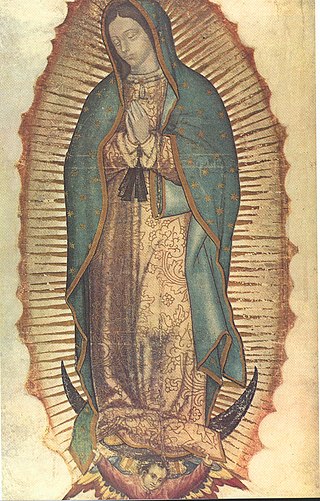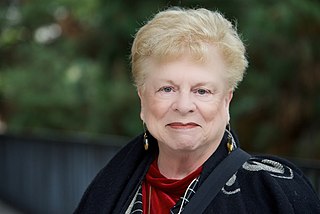
The American Psychological Association (APA) is the largest scientific and professional organization of psychologists in the United States, with over 146,000 members, including scientists, educators, clinicians, consultants, and students. It has 54 divisions—interest groups for different subspecialties of psychology or topical areas. The APA has an annual budget of around $125 million.

A psychologist is a professional who practices psychology and studies mental states, perceptual, cognitive, emotional, and social processes and behavior. Their work often involves the experimentation, observation, and interpretation of how individuals relate to each other and to their environments.
Clinical psychology is an integration of human science, behavioral science, theory, and clinical knowledge for the purpose of understanding, preventing, and relieving psychologically-based distress or dysfunction and to promote subjective well-being and personal development. Central to its practice are psychological assessment, clinical formulation, and psychotherapy, although clinical psychologists also engage in research, teaching, consultation, forensic testimony, and program development and administration. In many countries, clinical psychology is a regulated mental health profession.
Counseling psychology is a psychological specialty that began with a focus on vocational counseling, but later moved its emphasis to adjustment counseling, and then expanded to cover all normal psychology psychotherapy. There are many subcategories for counseling psychology, such as marriage and family counseling, rehabilitation counseling, clinical mental health counseling, educational counseling, etc. In each setting, they are all required to follow the same guidelines.

Marianismo is a Spanish American term that describes an ideal of true femininity with characteristics derived from the devotional cult of St. Mary of Guadalupe, a central figure of Roman Catholicism in Mexico. It defines standards for the female gender role in Hispanic American folk cultures, and is strictly intertwined with machismo and Roman Catholicism.
The scientist–practitioner model, also called the Boulder Model, is a training model for graduate programs that provide applied psychologists with a foundation in research and scientific practice. It was initially developed to guide clinical psychology graduate programs accredited by the American Psychological Association (APA).
Maria P. P. Root is a clinical psychologist, educator, and public speaker based in Seattle, Washington. Her areas of work include multiracial families, multiracial identity, cultural competence, trauma, workplace harassment, and disordered eating. She is an international authority on mixed heritage identity, credited with publishing the first contemporary work on mixed-race people. She has presented lectures and training in various countries, both in and outside of academia.
A clinical formulation, also known as case formulation and problem formulation, is a theoretically-based explanation or conceptualisation of the information obtained from a clinical assessment. It offers a hypothesis about the cause and nature of the presenting problems and is considered an adjunct or alternative approach to the more categorical approach of psychiatric diagnosis. In clinical practice, formulations are used to communicate a hypothesis and provide framework for developing the most suitable treatment approach. It is most commonly used by clinical psychologists and is deemed to be a core component of that profession. Mental health nurses, social workers, and some psychiatrists may also use formulations.
Kirk J. Schneider is a psychologist and psychotherapist who has taken a leading role in the advancement of existential-humanistic therapy, and existential-integrative therapy. Schneider is also the current editor of the Journal of Humanistic Psychology. His major books are Existential-Humanistic Therapy (2010), Existential-Integrative Therapy (2008), The Handbook of Humanistic Psychology (2001), The Psychology of Existence (1995), Rediscovery of Awe (2004), Awakening to Awe (2009), and "The Polarized Mind" (2013).
Gerald R. Weeks is an American author and lecturer. He has published 30 books on psychotherapy, which have been translated into multiple languages. He has published in the fields of individual, and family therapy, although he is best known for his work in sex and couple's therapy. Weeks is the founder of the Systems Approach to Sex Therapy as well as the founder of the Intersystem Approach to therapy which has been called one of the most ambitious efforts to develop an integrative approach to psychotherapy. He was a professor in the Marriage and Family Therapy Program at the University of Nevada-Las Vegas from 1999-2017. In 2017, he became Professor Emeritus as he retired from UNLV.
Gerald Paul Koocher is an American psychologist and past president of the American Psychological Association (APA). His interests include ethics, clinical child psychology and the study of scientific misconduct. He is Dean Emeritus Simmons University and also holds an academic appointment at Harvard Medical School. Koocher has over 300 publications including 16 books and has edited three scholarly journals including Ethics & Behavior which he founded. Koocher was implicated as an author of the so-called "torture memos" that allowed psychologists to participate in torture during interrogations in the Hoffman Report, an APA investigation into psychologists' involvement in interrogation at Guantanamo Bay, Cuba.
Clinton W. McLemore is an American psychologist and author.
Eclectic psychotherapy is a form of psychotherapy in which the clinician uses more than one theoretical approach, or multiple sets of techniques, to help with clients' needs. The use of different therapeutic approaches will be based on the effectiveness in resolving the patient's problems, rather than the theory behind each therapy.
Anne Marie Albano is a clinical psychologist known for her clinical work and research on psychosocial treatments for anxiety and mood disorders, and the impact of these disorders on the developing youth. She is the CUCARD professor of medical psychology in psychiatry at Columbia University, the founding director of the Columbia University Clinic for Anxiety and Related Disorders (CUCARD), and the clinical site director at CUCARD of the New York Presbyterian Hospital's Youth Anxiety Center.

Oliva Maria Espín is a Cuban American counseling psychologist known for her pioneering intellectual contributions to feminist therapy, immigration, and women's studies, and her advocacy on behalf of refugee women to help them to gain access to mental health services. Her interdisciplinary scholarly work brings together perspectives from sociology, politics, and religion to further understanding of issues and barriers related to gender, sexuality, language, and race. She is in the vanguard of transnational psychology, that applies transnational feminist lenses to the field of psychology to study, understand, and address the impact of colonization, imperialism, and globalization. She is the first Latina Professor Emerita of Women’s Studies at San Diego State University.
Rachel Thies Hare-Mustin was an American clinical psychologist, known for her strong passion for social justice, civil rights, pacifism, and gender equality. As a scholar, she was known for her research in feminist postmodern theory, gender issues, and professional ethics, and for clinical application of feminist theory to family therapy.
Evelyn Paniagua Stevens was an American scholar of Latin American studies. She spent much of her career at the Latin American Studies Center in the University of California, Berkeley, where she was a scholar of Latin American politics and women's studies. Stevens may have been the first to introduce the concept of marianismo to the academic literature, when she controversially argued in 1973 that marianismo was a widespread counterbalance to machismo. Stevens was the 10th President of the Latin American Studies Association, and the first woman to be president of that organization.
Donald H. Meichenbaum is an American psychologist and Distinguished Professor Emeritus of Psychology at the University of Waterloo, Ontario. He is a research director of the Melissa Institute for Violence Prevention and Treatment at the University of Miami. Meichenbaum is known for his research and publications on psychotherapy, and contributed to the development of the technique of cognitive-behavioural therapy (CBT). In 1982, a survey of 800 members of the American Psychological Association voted Meichenbaum the tenth most influential psychotherapist of the 20th century. At the time of his retirement from the University of Waterloo in 1998, Meichenbaum was the most-cited psychology researcher at a Canadian university.

Lillian Comas-Díaz is an American psychologist and researcher of multiethnic and multicultural communities. She was the 2019 winner of American Psychological Association (APA) Gold Medal Award for Life Achievement in the Practice of Psychology. In 2000, she received the APA Award for Distinguished Senior Career Contribution to the Public Interest.
Dinelia Rosa is a Latina clinical psychologist who runs her own practice and works at the Columbia University Teachers College in New York.




